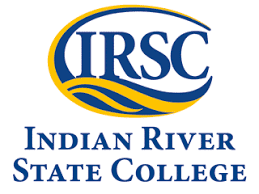Are you ready to make a difference in the lives of people in your community? You can do so quickly and  without spending an arm and a leg! Enroll in one of the cheapest online criminal justice degree programs to enhance your career prospects. You can learn critical skills that are valuable for assisting victims, perpetrators, and others in the criminal justice system.
without spending an arm and a leg! Enroll in one of the cheapest online criminal justice degree programs to enhance your career prospects. You can learn critical skills that are valuable for assisting victims, perpetrators, and others in the criminal justice system.
Crime is a plague on any society, and to combat it, professionals working in criminal justice must understand many complex factors. This includes the behavioral motivations of perpetrators, the emotional effects of crime on victims, and legal considerations that judges and attorneys have to make.
But criminal justice stretches far beyond the courtroom and crime scene. Instead, this field encompasses everything from psychology to law to corrections. Criminal justice explores topics related to race, advocacy for victims, and post-sentencing services for perpetrators like probation and parole.
These factors combine to form a broad discipline of theory and practice. This is where a bachelor’s degree in criminal justice can be vital. In an online classroom, you can meld theory and practice to best equip yourself for success in a complicated yet essential field.
What is a Bachelor’s in Criminal Justice Degree?
Undergraduate degrees in criminal justice thoroughly examine the many factors influencing crime and the justice system. As noted above, you’ll explore various topics throughout a typical criminal justice program.
For example, many programs offer courses in:
- Courts and Sentencing
- Introduction to Policing
- Criminal Justice Crime Control Policies
- Introduction to Corrections
- Inequality, Crime, and Criminal Justice
Many colleges and universities offer online bachelor of arts and bachelor of science in criminal justice degrees. Usually, a bachelor of arts program requires that you take world languages courses. Conversely, a bachelor of science program usually focuses more on the scientific aspects of criminology and might emphasize criminal justice research.
In either case, you’ll focus on criminal justice from various viewpoints – perpetrator and victim, law enforcement and attorney, individual and community member, and so forth.
Additionally, both BA and BS programs usually take about four years to complete if you attend school full-time. If you attend part-time, you might need five or six years to complete a typical criminal justice degree program.
Whether you’re a first-year student straight out of high school or a professional in the field of criminal justice who wants to gain new skills, a formal degree can help you prepare for an entry-level position or advance your current career.
What is Required to Graduate With a Bachelor’s in Criminal Justice Degree?
A typical bachelor’s degree program in criminal justice requires about 120 semester credits to graduate. This is not a hard-and-fast number, though. In some cases, you might need up to around 128 semester credits to graduate.
All undergraduate programs in this field have a general education component that includes liberal arts courses. You’ll take basic courses in math, science, and the humanities. You’ll need to take social science courses, fulfill physical education requirements, and take communication courses (among others) to meet the general education component of your degree (which is roughly equivalent to earning an associate degree).
In addition to roughly 60 credits of lower-level coursework, you’ll need another 60 or so credits of upper-level studies. These courses are more advanced, involve a greater level of work and commitment, and are more highly focused on criminal justice. In addition to the specific topics discussed in the previous section, you might explore topics related to the following:
- Ethics
- Juvenile delinquency
- Criminal theory
- Research methods
- Statistical methods
Of course, every criminal justice program is a little different, so each program you examine might have slightly different requirements for graduation.
For example, some programs require you to take courses in race or gender. Schools may offer minor studies in behavioral sciences such as psychology, mental health, or sociology as well. In some cases, you’ll study criminal investigation techniques, and in others, you’ll study criminal behavior.
Your prior college studies, if any, also impact the requirements for graduating with a criminal justice bachelor’s degree. For example, if you already have an associate’s degree in criminal justice, you’ll need to complete far fewer course requirements than a first-year student with no prior collegiate studies.
See also: Best Online Master’s in Criminal Justice
Is an Online Bachelor’s Degree in Criminal Justice the Same as an On-Campus Program?
By and large, online and on-campus degree programs are virtually identical, apart from the obvious difference in course delivery. In most cases, colleges and universities offer the same program online as is offered on campus. What’s more, online courses are usually taught by professors who teach in person.
The accreditation for these programs is the same, too. For example, if you attend a regionally-accredited institution of higher education like Eastern Kentucky University, it doesn’t matter if you earn your degree online or in person. Either way, you’re attending a school with the highest level of accreditation.
In the past, schools might have indicated on your transcript or diploma that you took courses online or completed an online degree program. That is no longer the case. With comparable educational and training opportunities for in-person and online students, you can get your online degree knowing it will be as respected as a degree earned on campus.
What Can You Do With a Criminal Justice Bachelor’s Degree?
One of the benefits of getting a degree that encompasses such a broad field of study is that there are many career paths you can pursue after graduation. Though many people that study criminal justice go into law enforcement as police officers or into corrections as correctional officers, there are many other avenues you can take. This includes:
- Probation and parole agent
- Intelligence officer
- Fraud investigator
- Forensic science technician
- Private investigator
You could also work in cybersecurity, as a legal assistant, or as a crime scene investigator. Some graduates work in the restorative justice field. With additional education and training, you can also use your criminal justice studies to become an attorney, psychologist, or social worker, or pursue a career with a federal agency like the FBI or CIA. Your educational path can take many routes depending on your career goals.
See also: 20 Best Online Master’s in Computer Forensics
How Much Can You Earn With a Bachelor’s in Criminal Justice Degree?
There are many career opportunities in the criminal justice field, and your salary will reflect your role in the criminal justice system. For example, possible job titles in the field include:
- Fish and Game Warden
- Probation Officer
- State Trooper
- Crime Scene Investigator
- Forensic Science Technician
The Bureau of Labor Statistics (BLS) offers insights into the earning potential of these and many other jobs in criminal justice. Fish and Game Wardens, for example, earn a mean annual salary of $58,190. On the other hand, probation officers earn slightly more, with a mean yearly wage of $63,290.
You can expect to earn more money as you gain experience, move up the ranks, or specialize in a particular area. For example, forensic science technicians earn a mean yearly salary of $66,850, partly due to the highly specific skills they must possess for the position.
As another example, attorneys make a median annual salary of nearly $150,000 per year. Again, this is partly a reflection of the additional education and training required to practice law.
Many factors other than your job title can impact how much money you earn in the criminal justice field. Your level of experience is certainly a major component of how much you make. As a first-year patrol officer, you’ll earn less than a detective with 20 years of on-the-job experience.
The setting in which you work can also influence your earnings. For example, you might earn more money as a probation and parole agent than if you work as a corrections officer. Likewise, you might earn more money working in one geographic location versus another. For example, criminal justice careers in urban areas typically pay better than those in rural areas.
You also have to consider non-salary compensation as part of your earnings. Some criminal justice professionals, like law enforcement, get a pension, health insurance, paid time off, and other benefits that add to the overall compensation package.
What are the Cheapest Criminal Justice Degree Programs?
Online School Report uses multiple data points to arrive at the rankings below. These data points fall into two categories – program-specific and school-specific.
The program-specific criteria we examine are the number of degree options available and the median annual wages two years after graduating from the program. There are five school-wide data points to supplement these criteria. They include:
- The school’s admissions rate
- The school’s graduation rate
- The median student debt upon graduation
- Student satisfaction
- The type of accreditation (regional or national)
Each school below has data for each of these seven factors clearly listed. With this data easily accessible, you can more quickly determine which programs have the features you most want or need.
For additional details about our ranking system, please visit our methodology page.
See also: The Most Affordable Online Colleges in the United States
University of Central Florida

Quick Facts
- Length: 120 credits
- Time to complete: 4 years (if attending full-time)
- Format: Online
- Tuition: $179.19 per credit hour (in-state); $715.80 (out-of-state)
- This program is offered as a Bachelor of Arts and as a Bachelor of Science.
Online Program Information:
Number of Degree Options: 2
Median Earnings Two Years After Graduation: $51,912
School-Wide Information:
Admission Rate: 36%
Graduation Rate: 72%
Median Debt Upon Graduation: $18,635
Student Satisfaction: 4.0 out of 5 stars
Type of Accreditation: Regional
OSR Score: 81.67
Whether you choose the Bachelor of Arts or Bachelor of Science option from the University of Central Florida, you’ll learn from professors with knowledge and expertise in the field. These professors guide you through the online learning experience and lead you in hands-on training, criminal justice research, and interactive online coursework.
What’s more, you’ll learn from a university widely recognized as a leader in online education – the University of Central Florida ranks among the best in the nation for online programs, according to US News & World Report.
As a graduate of this program, you can pursue employment in many different fields. This includes:
- Homicide Detective
- Crime Scene Investigator
- Forensic Science Technician
- Corrections Officer
- Immigration and Customs Enforcement Agent
If you want to continue your education, though, UCF has an online Master of Science in Criminal Justice. There’s also a graduate certificate in crime analysis offered entirely online.
Aside from preparing you for any number of careers, this program is also extremely affordable if you’re a Florida resident. Tuition is just $179.19 if you’re from the Sunshine State. Out-of-state tuition is far more expensive, as is the case for most schools. However, financial aid can help reduce those costs. Be sure to fill out the FAFSA to determine your eligibility for aid.
Colorado State University

Quick Facts
- Length: 120 credits
- Time to complete: 4 years (if attending full-time)
- Format: Online
- Tuition: $350.00 per credit hour (in-state and out-of-state)
- This program’s flexible learning format allows you to do coursework when it’s most convenient for you, enabling you to work full-time while getting your degree.
Online Program Information:
Number of Degree Options: 2
Median Earnings Two Years After Graduation: $55,000
School-Wide Information:
Admission Rate: 96%
Graduation Rate: 46%
Median Debt Upon Graduation: $25,000
Student Satisfaction: 3.5 out of 5 stars
Type of Accreditation: Regional
OSR Score: 66.67
One of the most attractive features of this undergraduate program from Colorado State University is that you’ll study traditional and contemporary aspects of criminal justice. On the one hand, you’ll learn about the roles of law, order, courts, and corrections. On the other hand, you’ll investigate more contemporary topics like:
- Race and crime
- Cybercrime
- Homeland security
- Forensics
- International investigations
The curriculum includes a mix of general education requirements, core courses, and electives. The criminal justice core is 30 credits, including studies in Criminal Law, Criminology, and Laws of Evidence.
Furthermore, you can pursue a degree specialization if you wish. Specializations are 12-credit courses of study that enhance the core coursework in criminal justice. CSU offers nearly two dozen specializations, including:
- Criminal Forensics
- Project Management
- Organizational Leadership
- Information Technology Management
- Public and Non-Profit Management
This accredited program isn’t the cheapest on this list. However, with a flat rate for in-state and out-of-state students, you can save a significant amount of money as a non-resident learner over a program that charges non-resident fees.
Upon graduating from this program, you’ll have the necessary knowledge and skills to enter the workforce. Alternatively, you can use your undergraduate studies as preparation for applying to CSU’s master’s degree program in criminal justice.
Indian River State College

Quick Facts
- Length: 120 credits
- Time to complete: 4 years (if attending full-time)
- Format: Online
- Tuition: $117.10 per credit hour (in-state); $400.00 per credit hour (out-of-state)
- Training opportunities are available at Indian River State College’s Treasure Coast Public Safety Training Complex
Online Program Information:
Number of Degree Options: 3
Median Earnings Two Years After Graduation: $34,018
School-Wide Information:
Admission Rate: 100% (this school has an open enrollment policy)
Graduation Rate: 39%
Median Debt Upon Graduation: $8,176
Student Satisfaction: 3.7 out of 5 stars
Type of Accreditation: Regional
OSR Score: 65
Indian River State College’s online Bachelor of Science in Criminal Justice is a preparatory program for careers in law enforcement, correctional settings, and related areas. You’ll gain an advanced understanding of criminal justice topics through hands-on classes in a range of areas, including:
- Juvenile justice
- Victimology
- Police and society
- Law and social control
- American court systems
While many people that graduate from this program become law enforcement officers, the training you get prepares you for other roles, such as policy analyst, victim advocate, and program manager. Additionally, you can continue your studies in a graduate program in criminal justice to get advanced training.
A unique feature of this program is the ability to train at the Treasure Coast Public Safety Training Complex. The Complex is one of the most advanced institutions of its kind in the nation and offers training in disaster response, relief, and recovery. You can learn about criminal justice applications alongside human services, fire science, public administration, and related fields.
Another unique attribute of this program is its extremely low expense. Not only is this one of the least expensive programs in this ranking at $117.10 per credit for in-state students, but Indian River State College also has one of the lowest student debt loads at just over $8,000.
Louisiana State University Alexandria

Quick Facts
- Length: 120 credits
- Time to complete: 4 years (if attending full-time)
- Format: Online
- Tuition: $325.000 per credit hour (in-state and out-of-state; includes fees)
- You might be able to earn credits toward this degree with past military or police experience.
Online Program Information:
Number of Degree Options: 2
Median Earnings Two Years After Graduation: $36,241
School-Wide Information:
Admission Rate: 58%
Graduation Rate: 31%
Median Debt Upon Graduation: $20,500
Student Satisfaction: 3.5 out of 5 stars
Type of Accreditation: Regional
OSR Score: 65
This online Bachelor of Science program from LSU Alexandria includes studies in a broad scope of specializations. You’ll take courses in crime scene investigation, criminal justice administration, and forensics. Likewise, you’ll explore the judicial process, the correctional system, and constitutional law.
The major area courses discussed above comprise just one component of this program. You must also complete general education classes and criminal justice electives to graduate. No matter what classes you take, you’ll work with faculty with real-world experience as criminal justice practitioners.
If criminology and psychology interest you, LSU Alexandria offers another online BS in Criminal Justice focusing on criminal psychology. This degree is also 120 credits and $325 per credit hour. The primary difference between these two online programs is that more psychology courses are required to graduate with a criminal psychology degree.
In either case, upon graduation, you’ll have the knowledge and skills to seek entry-level positions in the criminal justice field. This includes working in law enforcement, corrections, or probation and parole, to name a few.
Arizona State University

Quick Facts
- Length: 120 credits
- Time to complete: 4 years (if attending full-time)
- Format: Online
- Tuition: $523.00 per credit hour (in-state; 12 or more credits per semester); $617.58 (out-of-state; 12 or more credits per semester)
- Courses are in shortened 7.5-week terms, which allows you to focus on fewer classes at once.
Online Program Information:
Number of Degree Options: 3
Median Earnings Two Years After Graduation: $55,749
School-Wide Information:
Admission Rate: 70%
Graduation Rate: 52%
Median Debt Upon Graduation: $20,000
Student Satisfaction: 3.5 out of 5 stars
Type of Accreditation: Regional
OSR Score: 65
Arizona State University has one of the largest online schools in the nation, with hundreds of undergraduate and graduate degree options. This includes multiple undergraduate programs in criminal justice and related fields.
The online Bachelor of Science in Criminology and Criminal Justice is a four-year program with 40 classes required for graduation. Each course within the major is just 7.5 weeks. This accelerated format means you complete courses faster but take fewer courses at the same time.
The coursework for this program includes a breadth and depth of topics, such as:
- Introduction to Policing
- Criminology
- Statistical Analysis
- Criminal Justice Crime Control Policies and Practices
- Introduction to Corrections
Faculty associated with this program are experienced practitioners who understand the theory and practice of criminal justice in a wide scope of settings. Moreover, ASU’s criminal justice faculty are recognized for their experience, research, and public service. This is evidenced by the fact that faculty members are fellows of the Academy of Criminal Justice Sciences and the American Psychological Association.
Southeastern Oklahoma State University

Quick Facts
- Length: 124 credits
- Time to complete: 4 years (if attending full-time)
- Format: Online
- Tuition: $295.00 per credit hour (in-state and out-of-state)
- You can transfer up to 90 credits to apply toward this degree.
Online Program Information:
Number of Degree Options: 1
Median Earnings Two Years After Graduation: $41,698
School-Wide Information:
Admission Rate: 74%
Graduation Rate: 37%
Median Debt Upon Graduation: $17,513
Student Satisfaction: 3.3 out of 5 stars
Type of Accreditation: Regional
OSR Score: 63.33
At Southeastern Oklahoma State University, you can get an affordable criminal justice degree whether you live in Oklahoma or not. Though the $295.00 per credit tuition rate isn’t the lowest on this list, it’s close, especially for out-of-state students.
This program is slightly longer than most undergraduate degrees at 124 credit hours. The extra length is due in part to the required minor, which you must select with the consultation of your academic advisor.
In addition to completing 44 general education credits, you must also complete 36 credits within the criminal justice major. This includes core courses like:
- Introduction to Policing in the U.S.
- Introduction to Law & The Legal System
- Introduction to U.S. Corrections
- Introduction to Social Research
- Statistics in the Behavioral Sciences
You must also take six credits of criminal justice electives and three psychology credits. All courses in this program – whether required core or elective – last seven weeks.
Once you graduate, you can pursue various careers with organizations like the U.S. Marshals Service, the FBI, or local or state law enforcement agencies.
West Virginia State University

Quick Facts
- Length: 120-121 credits
- Time to complete: 4 years (if attending full-time)
- Format: Online
- Tuition: $346.17 per credit hour (in-state and out-of-state; based on 12 credits or more per semester)
- West Virginia State University is a Historically Black College and University (HBCU) and is one of two such institutions in West Virginia.
Online Program Information:
Number of Degree Options: 2
Median Earnings Two Years After Graduation: $34,584
School-Wide Information:
Admission Rate: 97%
Graduation Rate: 39%
Median Debt Upon Graduation: $23,894
Student Satisfaction: 3 out of 5 stars
Type of Accreditation: Regional
OSR Score: 61.67
West Virginia State University offers two Bachelor of Science options in Criminal Justice. The first is a 120-credit program that focuses on general criminal justice topics. The second option is a 121-credit specialization in forensic science. Both degrees are available entirely online.
No matter which of these degrees you pursue, you’ll gain the education and training needed to have a successful career in criminal justice. This includes jobs in correctional settings, probation and parole, and juvenile justice, to mention just a few. Alternatively, you can use this program to advance your current criminal justice-related career or prepare for graduate studies.
As part of your studies, you’ll complete around 40 credits of general education requirements and another 40 or so credits of major coursework. This includes courses like:
- Criminal Procedure
- Criminal Law
- Ethics in Criminal Justice
- Punishment and Corrections
- Victimology
There are several specialization options to consider with these programs as well. For example, you can focus your studies on courts, legal studies, law enforcement, corrections, or forensic investigations. These specializations require you to complete five courses, all of which count toward the needed total to graduate.
As a result of your participation in this program, you’ll graduate with knowledge of the criminal justice system, ethical considerations, and critical thinking skills. This skill set enables you to positively impact the area of criminal justice in which you work, be that law enforcement, advocacy, detention, or something in between.
New Mexico State University

Quick Facts
- Length: 120 credits
- Time to complete: 4 years (if attending full-time)
- Format: Online
- Tuition: $395.40 per credit hour (in-state and out-of-state)
- New Mexico State University offers a reduced military tuition rate of $250.00 per credit hour.
Online Program Information:
Number of Degree Options: 2
Median Earnings Two Years After Graduation: $36,683
School-Wide Information:
Admission Rate: 57%
Graduation Rate: 52%
Median Debt Upon Graduation: $18,464
Student Satisfaction: 3.6 out of 5 stars
Type of Accreditation: Regional
OSR Score: 61.67
A unique feature of this program is that it’s offered by one of the nation’s oldest criminal justice departments. NMSU’s Department of Criminal Justice was founded in 1962 as an experiential learning program for students to explore undergraduate and graduate studies. Today, both undergraduate and graduate degrees in criminal justice are offered entirely online.
This undergraduate program is interdisciplinary in its approach. As such, you’ll take courses in many areas, including:
- Law
- Behavioral Science
- Natural Science
- Social Science
- Humanities
What’s more, you’ll have opportunities to learn from people working in various crime-related agencies. This includes law enforcement, immigration, and corrections, as well as justice studies and social justice.
As a result of this multi-modal education, you can pursue any number of educational or work experiences after graduation. For example, graduates of this program often go on to study at the graduate and doctoral levels. Other graduates enter the workforce in victim services, juvenile services, probation and parole, and related areas.
Indiana University East

Quick Facts
- Length: 120 credits
- Time to complete: 4 years (if attending full-time)
- Format: Online
- Tuition: $239.01 per credit hour (in-state); $346.89 (out-of-state)
- Indiana University East is a regional campus of Indiana University.
Online Program Information:
Number of Degree Options: 1
Median Earnings Two Years After Graduation: $38,629
School-Wide Information:
Admission Rate: 81%
Graduation Rate: 45%
Median Debt Upon Graduation: $18,120
Student Satisfaction: 3.7 out of 5 stars
Type of Accreditation: Regional
OSR Score: 58.33
This four-year, 120-credit program from Indiana University East is available fully online for the greatest flexibility. Courses are taught by the same professors as on-campus classes, and you also benefit from using different modalities of communicating with your professors and classmates.
Moreover, since IU East is part of the larger IU family, your online courses give you access to the wealth of resources from IU’s main campus.
This degree focuses on traditional themes in criminal justice, such as law, crime, and victimology. You’ll learn about these and other aspects of criminal justice in courses like:
- Theories of Crime and Deviance
- Courts and Criminal Justice
- Criminal Justice Data, Methods, and Research
- Legal Aspects of Criminal Justice
- Criminal Justice Management
You can also participate in a criminal justice field experience. The specifics of this experience can be tailored to your interests and needs. This might include directed readings, research, and writing.
There are many elective courses you can take to specialize your studies further. For example, you can take a course entitled “Wrongful Convictions” if your interests lie in criminal defense. As another example, you can take a course entitled “American Juvenile Justice System” if you’re interested in applying criminal justice theories with juvenile offenders.
Northern Kentucky University

Quick Facts
- Length: 120 credits
- Time to complete: 4 years (if attending full-time)
- Format: Online
- Tuition: $461.00 per credit hour (in-state and out-of-state; a reduced rate of $275.000 per credit hour is available to qualifying first-time NKU students)
- You might be able to earn college credit for prior learning and work experiences.
Online Program Information:
Number of Degree Options: 1
Median Earnings Two Years After Graduation: $39,268
School-Wide Information:
Admission Rate: 98%
Graduation Rate: 47%
Median Debt Upon Graduation: $22,500
Student Satisfaction: 3.8 out of 5 stars
Type of Accreditation: Regional
OSR Score: 58.33
This online bachelor’s degree in criminal justice focuses on three critical areas: policing, corrections, and the courts. You’ll gain expertise in these fields over the course of four years of full-time study, all of which can be done online (though NKU offers an on-campus degree, too).
This program includes a 24-credit core of criminal justice classes, 24 credits of criminal justice electives, and 37 general education credits. Additionally, you must complete 23 credits of free electives, and a 12-credit declared minor to satisfy graduation requirements.
Core coursework includes:
- The Criminal Court System
- Police in America
- Criminal Justice Research Methods
- Corrections in America
- Perspectives on Crime
You can supplement these studies with elective classes in crime prevention, alternatives to correction, and the death penalty, to name a few.
The 12-credit minor should complement your criminal justice studies, but it cannot be in a criminal justice or criminalistics field. Possible minors include psychology, sociology, and communications, though many other options exist.
NKU offers prior learning credit if you’ve completed police academy or Federal Bureau of Prisons training. Seven courses are eligible for credit toward your NKU degree in both cases.





